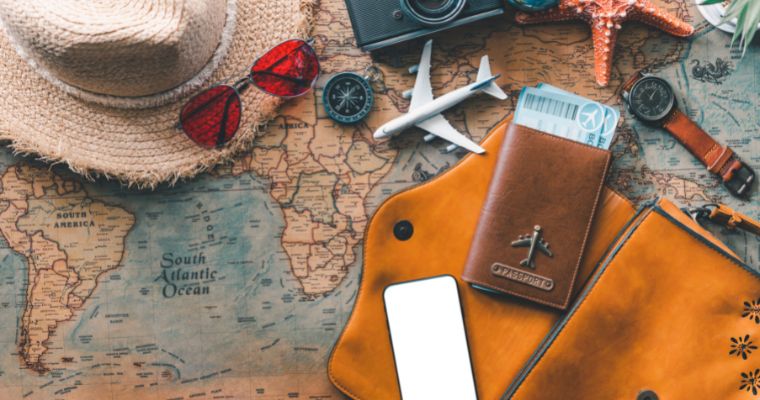There are many things to think about when you’re preparing to travel. What clothes should you pack? What’s the currency conversion rate? It can be tough to keep track of everything, which is why this list of things you need to do before travelling is here to help you.

1. Get Your Passport
In most cases, it takes 10 weeks to process a passport application, so it’s important to plan ahead. Make sure to have a recent photo of yourself and any other required documents handy when you apply. Some required documents might include a birth certificate, naturalisation certificate, or expired passport.
Most countries also require that your passport photo meet certain standards. For example, it should be a passport-style photo with a white background, and your face should be visible.
2. Get Travel Insurance
No one likes to think about the worst-case scenario, but it’s always a good idea to have travel insurance if something goes wrong. You never know when you might get sick or injured while travelling, and unexpected bills can be expensive. That’s why it’s a good idea to get travel insurance no matter where you’re going or how long you’ll be gone.
Travel insurance covers you in an emergency, whether it’s a medical situation or lost luggage. Also, if you’re travelling with family or children, get coverage for them as well.
3. Check Visa Requirements
Depending on your destination, you may need to apply for a visa before travelling. For example, you may need a Schengen visa if you’re planning a trip to Europe.
A Schengen visa is a permit that enables individuals to visit any of the Schengen Zone countries for up to 90 days within a six-month period, primarily for tourism or business. The United Kingdom, however, is not a member of the Schengen Zone.
While British citizens can enter Schengen countries for short stays without requiring a visa, UK residents who are not British citizens might need one. These residents should ensure their UK residence permit is valid for a minimum of three months past their intended departure from the Schengen Zone.
For those in the UK on a temporary visa, such as visitors, they must apply for a Schengen visa from their country of origin, not within the UK. The standard documents needed for this visa include a valid travel document, a UK residence permit, a filled-out visa application, a recent photograph, an itinerary cover letter, and evidence of travel plans.
If you’re planning brief visits to EU or Schengen countries, you won’t require a visa for stays of 90 days or less within any 180-day period, provided you’re travelling for tourism or certain other activities.
Make sure to check visa requirements well in advance of your trip so that you don’t run into any delays. These can be found on the website of your destination’s embassy or consulate. They usually include a valid passport, a photograph, and a completed application form.
4. Research Your Destination
The more you know about your destination, the more enjoyable your trip will be. Read up on the local currency, customs, and culture to avoid offending anyone while you’re there. You should also look into the safest and most dangerous areas to avoid risky situations.
Also, make sure to check the weather so that you can pack appropriately. You don’t want to be caught in the rain without an umbrella or in the middle of a snowstorm without a coat.
In addition, familiarise yourself with some basics of the local language to better communicate with the people you meet while travelling. You can also consider familiarising yourself with the public transportation system so that getting around is easy and stress-free. Finally, don’t forget to research the best places to eat and drink to enjoy the local cuisine.
5. Make Copies of Important Documents
Before you board a plane, make sure you make copies of all of your important documents. This includes your passport, driver’s license, birth certificate, insurance cards, and anything else you might need while away. Keep one set of copies at home with a trusted friend or family member, and carry the other set while you travel.
6. Pack Smart
Packing light is always preferable, but it’s especially important if you’re going to be taking public transportation or doing a lot of walking while on holiday. Bring only the essentials and ensure that everything fits in one carry-on bag, so you don’t have to worry about lost luggage or heavy bags weighing you down.
That said, you can still include one or two items that will make your trip more enjoyable, like a camera or a book. And don’t forget to bring snacks just in case you get stranded or need an energy boost.
7. Get Your Supplies
It might also be worth going on a shopping trip for supplies before you leave. This can help you to make sure you pack for the right climate. If you’re travelling somewhere warm, buy light, airy clothing and bring sunscreen. If you’re going someplace cold, shop for layers and warm clothes.
You can also consider shopping for portable items that will come in handy on your trip. A pocket-sized first aid kit, reusable water bottle, and universal adapter are all helpful items.
Following these steps will help ensure that your trip goes smoothly and that you have a great time while travelling.
Find Visa information for all countries with this online travel visa check.


